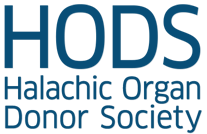This lengthy commentary on the section of Shulchan Aruch deals with Goseis (one whose death is immanent). In it, he includes an extensive discussion on the issue of brain-death. He expresses a great deal of skepticism as to whether brain-death should be considered a sufficient criterion to establish halachic death in a patient whose heart is still beating. He also expresses skepticism in the ability of the current medical criterion to positively diagnose brain-death, and even if it could, he expresses a lack of trust in physicians to always carry out the required tests.He continues by summarizing the opinions of major poskim on the issue of brain-death. He mentions Rabbi Tendler and the Chief Rabbinate’s ruling that one may transplant organs on the basis of the brain-death criteria, and Rabbis Eliashiv and Waldenberg who rejected it. He discusses at length the opinion of Rabbi Shlomo Zalman Auerbach, disputing reports that he had changed his opinion and eventually come to accept brain-death. With regard to the position of Rabbi Moshe Feinstein, while his earlier responsa are against organ transplants, his later responsa do seem to endorse the use of brain-death criteria. However, the Nishmat Avraham notes that some of these responsa seem to be based on outdated medical knowledge, and suggests that in light of some recent findings, Rabbi Feinstein may have changed his mind and opposed the use of brain-death. Ultimately, the Nishmat Avraham concludes that the consensus of most major poskim is not to rely on brain-death criteria halachically for organ transplants.
Halachic Organ donor Society, 3926 W. Touhy Ave, Suite #365, Lincolnwood, IL, 60712-1028. Phone: 646-599-3895, Email: office@hods.org
